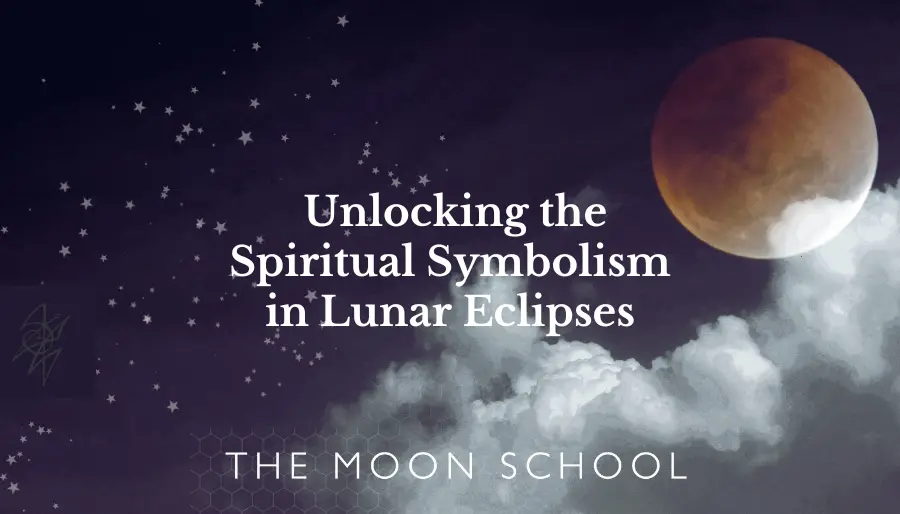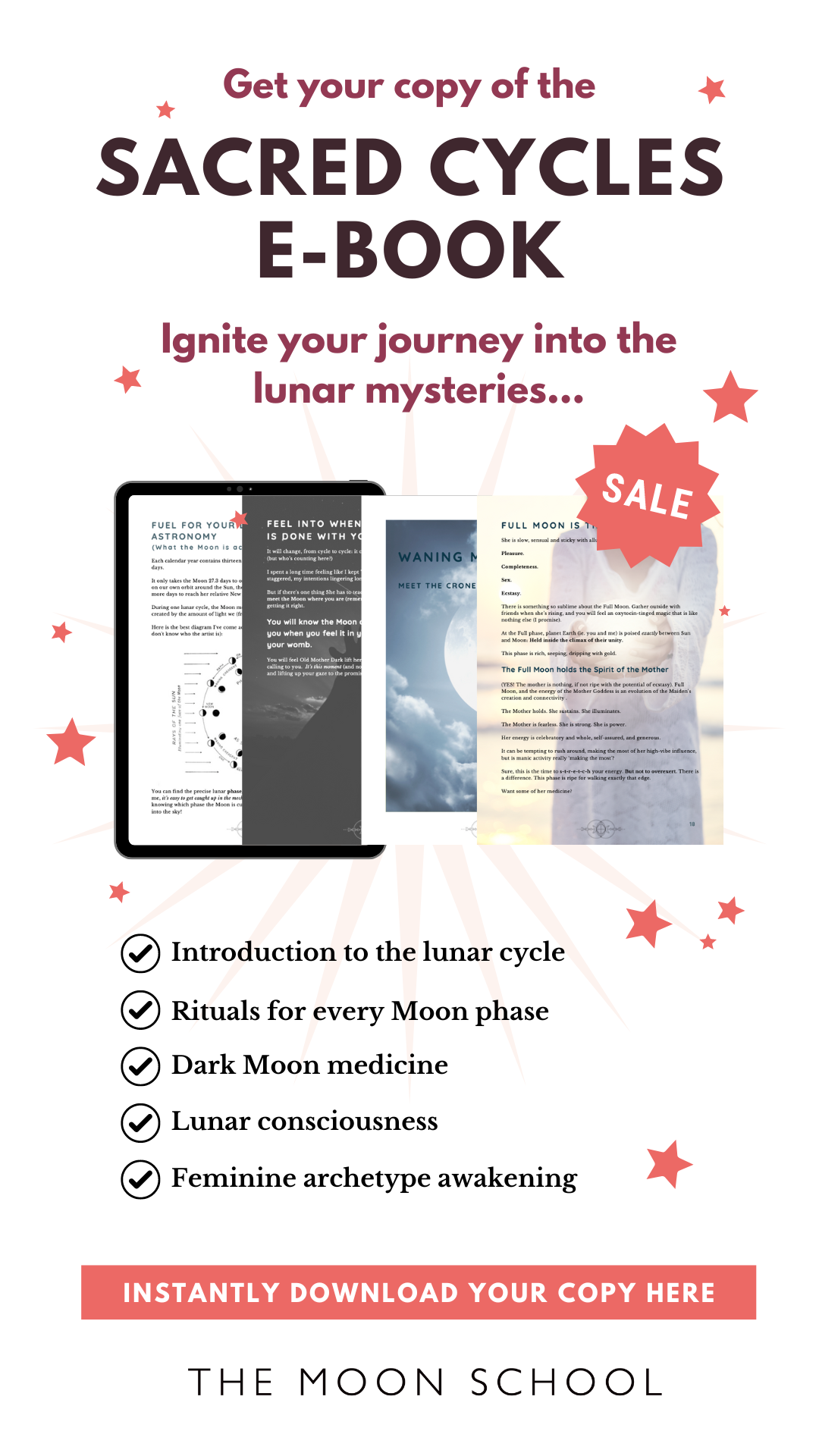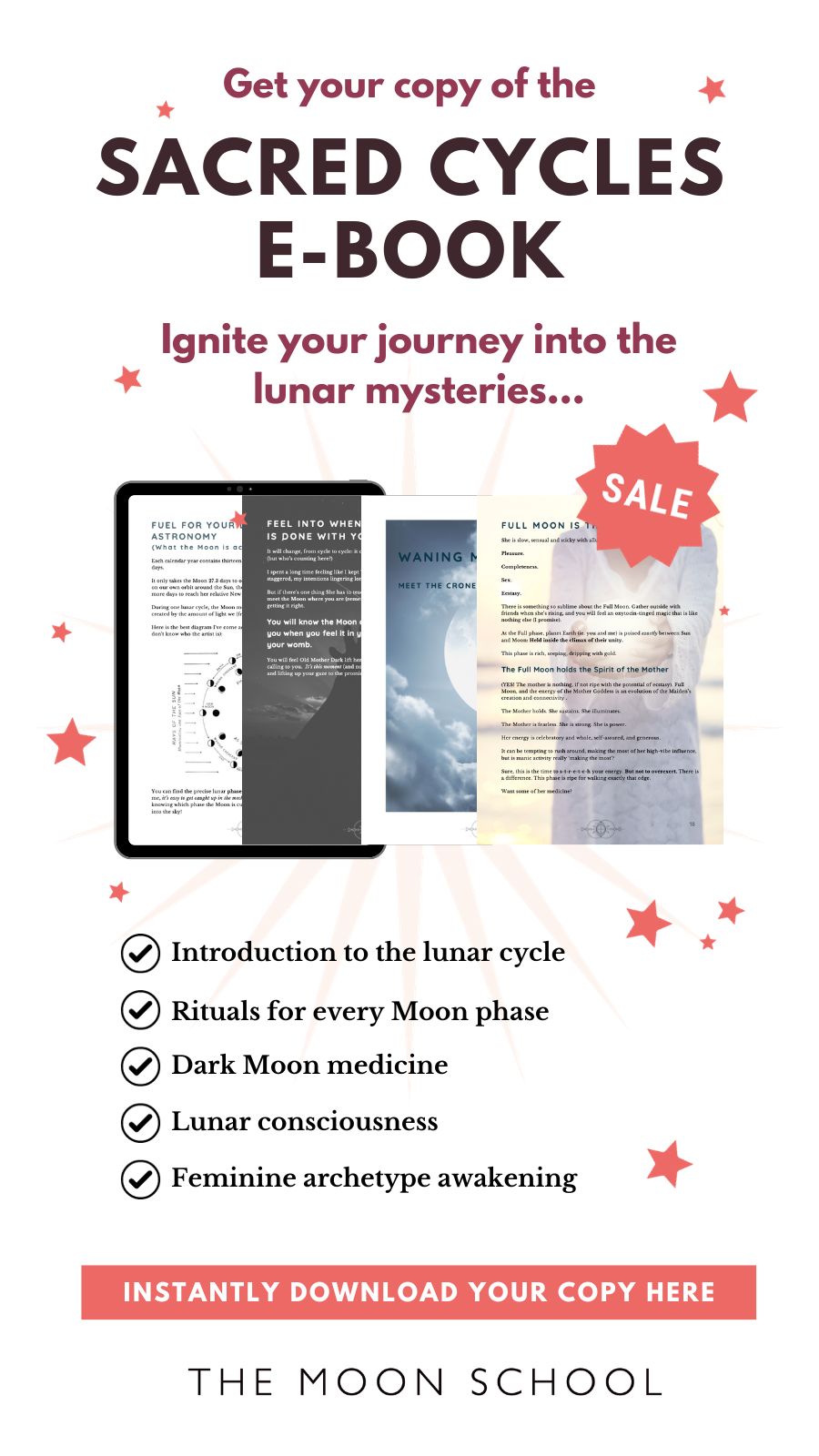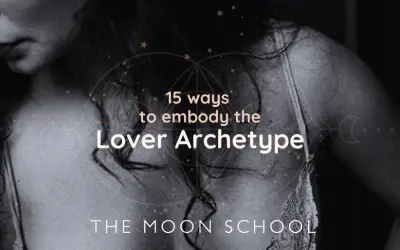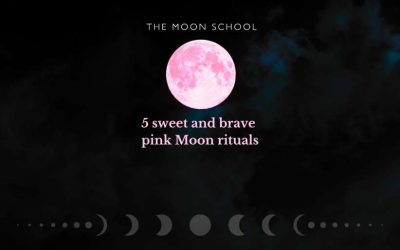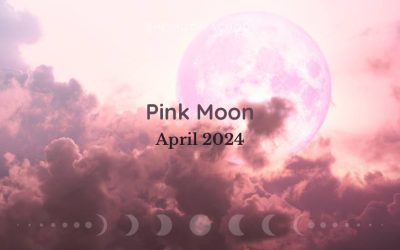Lunar eclipses have been observed and studied for thousands of years, and hold special meaning and significance, in many cultures and spiritual practices. The symbolism of a lunar eclipse can vary depending on the culture, but it often represents a time of change, transformation, and inner reflection.
In many ancient cultures, a lunar eclipse was seen as powerful omens or portents of change.
The ancient Greeks believed that a lunar eclipse was a sign of impending doom or disaster. While the ancient Chinese saw them as a sign of a dragon devouring the Moon. In Hindu mythology, the demon Rahu is said to swallow the Moon during a lunar eclipse, causing it to disappear temporarily.
Despite these ominous associations, many ancient cultures also saw lunar eclipses as a time for spiritual growth and inner reflection.
Today, many people still view lunar eclipses as a time of introspection and transformation. Some spiritual practitioners believe that the energy of a lunar eclipse can help to release negative emotions and patterns, allowing for personal growth and transformation.
Whether you view a lunar eclipse as a time of change or a time for spiritual reflection, there’s no denying the powerful symbolism and significance of this celestial event.
What is a Lunar Eclipse?
For a lunar eclipse to occur, it must also be a full Moon. This is why you’ll often her them referred to as a full Moon eclipse, or a full moon lunar eclipse.
A lunar eclipse occurs when the Earth stands directly between Moon and Sun, and Earth casts a shadow over the surface of the Moon. Because this turns the colour of the Moon a deep red color, lunar eclipses are also called blood Moons.
There are several types of lunar eclipse. These include:
- Total lunar eclipse
- Partial lunar eclipse
- Penumbral lunar eclipse
During a total lunar eclipse, the entire Moon passes through the Earth’s umbra, or inner shadow, and usually appear reddish or copper-colored. This is when people talk about “blood Moons”
During a partial lunar eclipse, only part of the Moon passes through the Earth’s shadow.
During a penumbral lunar eclipse, the Moon passes through the Earth’s penumbra, or outer shadow.
Eclipse seasons occur when the Moon and the Sun are aligned with the Earth in such a way that the Moon’s orbit intersects with the plane of the Earth’s orbit around the Sun. This alignment can cause four to seven eclipses to occur within a single year. There are usually two eclipse seasons in a year.
Eclipse seasons occur about six months apart, so each eclipse season is separated by about 173 days.
What is the meaning of a lunar eclipse in astrology?
In astrology, lunar eclipses are highly significant cosmic events. Like full Moons, they represent a turning point in the lunar cycle, which mirrors our spiritual, creative, and emotional cycles.
But they’re much more powerful than Full Moons!
Check out this post too: What’s the Spiritual Meaning of the Full Moon Phase?
Full Moon lunar eclipses are a bit like a cosmic reset. They allow you to reset and move forward with a greater sense of clarity. BUT this can sometimes happen in abrubt or unsettling ways.
Eclipses move deep emotional tides, and these can be hard to handle. Some eclipses bring news that can be surprising or shocking, so astrologically they’re often associated with sudden change.
The Moon represents your unconscious, emotional self. Because during a lunar eclipse, the light of the full Moon (i.e. the mirror of your emotional body) is blocked, as Earth’s shadow is cast over its surface, symbolically, humanity’s collective shadow is bring made visible.
This darkening, and then resetting of your emotional cycle provides an incredible opportunity to see into your personal shadow too. For this reason, lunar eclipses are great opportunities for shadow work.
What’s the symbolism of a lunar eclipse?
As well as their astrological importance, lunar eclipses hold great spiritual and emotional significance too.
Lunar eclipse meaning in ancient cultures
In ancient China, a lunar eclipse was believed to be caused by a dragon trying to devour the moon. To prevent this from happening, people would make loud noises and bang drums to scare away the dragon.
In ancient Greece, a lunar eclipse was seen as a sign of impending doom or disaster. It was also believed to be a bad omen for rulers and leaders.
In ancient Egypt, a lunar eclipse was seen as a time of potential danger, when evil spirits and demons could enter the world. People would perform rituals and ceremonies to protect themselves and their homes.
In Hindu mythology, a lunar eclipse was believed to be caused by the demon Rahu trying to swallow the moon. To prevent this, people would chant mantras and perform puja (worship) during the eclipse.
Overall, lunar eclipses were often seen as significant and mysterious events in ancient cultures, with various beliefs and customs associated with them.
Lunar eclipse meaning today
The spiritual meaning of a lunar eclipses in todays modern world tends to be deeply transformative.
When a lunar eclipse occurs in todays world, they often bring new beginnings, and unexpected information.
And as times of illumination, information may come to light that has been previously hidden – either in the dark landscape of your personal unconscious, or from other people.
For this reason, total lunar eclipses are a really good time to reflect on the shadow aspects of yourself and your life. Just as the Moon is temporarily blocked by the Earth’s shadow, so too can our own energy be temporarily blocked by our shadow aspects. Use this time to release any negative emotions or patterns that are no longer serving you.
Here’s a list of 10 spiritual aspects of a Full Moon lunar eclipse. These maybe lines of inquiry for you to follow, or concepts in your own life you notice being activated under the light (and shadow) of the next Moon eclipse.
Transformation: A lunar eclipse is often seen as a powerful time for transformation and spiritual growth. It is a time to release old patterns and embrace new ones.
Introspection: During a lunar eclipse, the energy is said to be more introspective and reflective. This can be a good time for meditation, journaling, or other spiritual practices.
Cleansing: A lunar eclipse is sometimes seen as a time for cleansing and purifying. It is a time to let go of negative energy and emotions.
Rebirth: The energy of a lunar eclipse is often associated with rebirth and new beginnings. It is a time to start fresh and make positive changes in your life.
Connection: Many people feel a deeper connection to the universe and to their own spirituality during a lunar eclipse.
Awareness: A lunar eclipse can bring a heightened awareness of the cycles of nature and the interconnectedness of all things.
Healing: The energy of a lunar eclipse is sometimes seen as a powerful time for healing, both physically and emotionally.
Creativity: The energy of a lunar eclipse can be very creative and inspiring. It is a good time to explore your creative side and express yourself through art, music, or writing.
Manifestation: A lunar eclipse is often seen as a good time for manifestation and setting intentions. It is a time to focus your energy on what you want to create in your life.
Surrender: Lunar eclipses can be times to surrender to the flow of life and trust in the universe. It is a time to let go of control and allow things to unfold naturally.
Solar eclipses vs lunar eclipses
We can’t talk about lunar eclipses, without mentioning solar eclipses too.
A solar eclipse occurs when the Moon passes between the Sun and Earth, blocking the Sun’s light and casting a shadow on Earth. During a total solar eclipse, the Moon completely covers the Sun, creating a moment of darkness in the middle of the day. Solar eclipses tend to be rarer than lunar eclipses, and they are only visible from certain parts of the world.
Unlike lunar eclipses, which only happen at the Full Moon, a solar eclipse can only occur at the new Moon.
New Moons are magical too!
Check out this post too – What’s the Spiritual Meaning of the New Moon Phase?
The symbolism of solar eclipses and lunar eclipses can differ as well.
The Sun represents vitality, energy, and the conscious mind, while the Moon represents emotions, intuition, and the unconscious mind. A total solar eclipse can be seen as a moment of darkness or uncertainty, as the Sun’s light is temporarily blocked. In contrast, a total lunar eclipse can be seen as a moment of transformation or release, as the Moon is bathed in the reddish light of Earth’s shadow.
In some cultures, solar eclipses have been seen as ominous or negative events, while lunar eclipses have been seen as positive or transformative. However, it’s important to note that these are cultural interpretations and not inherent qualities of the eclipses themselves.
Regardless of their cultural significance, both solar and lunar eclipses are awe-inspiring events that remind us of the vastness and beauty of the universe.
The cycle of eclipses
The cycle of eclipses is the pattern of how solar and lunar eclipses occur over time. This cycle is called the Saros cycle, which was first discovered by the ancient Babylonians.
The Saros cycle is a period of approximately 18 years and 11 days, during which a series of eclipses occur. Each Saros cycle begins with a partial eclipse, followed by a total or annular eclipse, and at the end, a partial lunar eclipse occurs.
After one Saros cycle, a similar cycle of eclipses will occur, but shifted about 120 degrees westward. This is why eclipse cycles occur in different pairs of zodiac signs that appear to be moving backwards.
The Saros cycle is important for predicting when and where eclipses will occur.
By knowing the date and time of a previous eclipse, astronomers can use the Saros cycle to predict the date and time of the next eclipse in the series.
As the cycle of eclipses continues, you can pay attention to the changes and shifts that are occurring in your life. Each eclipse is a chance to let go of the past and embrace the new cycle coming. It’s a beautiful, and long-term practice to track eclipse cycles and seasons.
But it’s SO rewarding!
By staying connected to the the energy of la Luna, and her cycle of eclipses, you are tapping into a powerful source of transformation and growth.
Frequently Asked Questions
Some of the most commonly asked questions about lunar eclipse meaning and symbolism…
What is the symbolism of an eclipse?
Lunar eclipses are often seen as symbols of transformation and change. In many cultures, the Moon is associated with feminine energy, intuition, and emotions, and a lunar eclipse can be seen as a time when these energies are particularly strong.
The shadow that falls across the moon during an eclipse can be seen as a symbol of the shadow self, or the parts of ourselves that we hide or repress.
Is lunar eclipse a good omen?
The meaning of a lunar eclipse can vary depending on the culture and the context.
In some traditions, a lunar eclipse is seen as a sign of impending disaster or upheaval! However, in many spiritual and metaphysical circles, Moon eclipses are seen as a powerful time for spiritual growth and transformation. It is a time to release old patterns and beliefs and to embrace new possibilities.
What is the spiritual meaning of eclipse energy?
Eclipse energy is thought to be particularly potent and transformative. It is a time when the veil between the physical and spiritual worlds is said to be thinner, making it easier to connect with higher realms of consciousness.
This energy can be harnessed for spiritual growth, healing, and manifestation.
What are some spiritual things to do during a lunar eclipse?
There are many spiritual practices that can be done during a lunar eclipse.
Some people meditate or do yoga to connect with the energy of the eclipse. Others perform rituals or ceremonies to release old patterns and beliefs and to set intentions for the future. Some people use crystals or other tools to amplify the energy of the eclipse.
What is the significance of a lunar eclipse today?
The significance of a lunar eclipse today can vary depending on the individual and the context. However, in today’s world many people see lunar eclipses as powerful times for spiritual growth and transformation.
Moon eclipses are times to release old patterns and beliefs and to embrace new possibilities.
They’re also great times to connect with the energy of the Moon in a more intentional way, and to tap into your intuition, sensitivity, emotions, and unconscious landscape.

